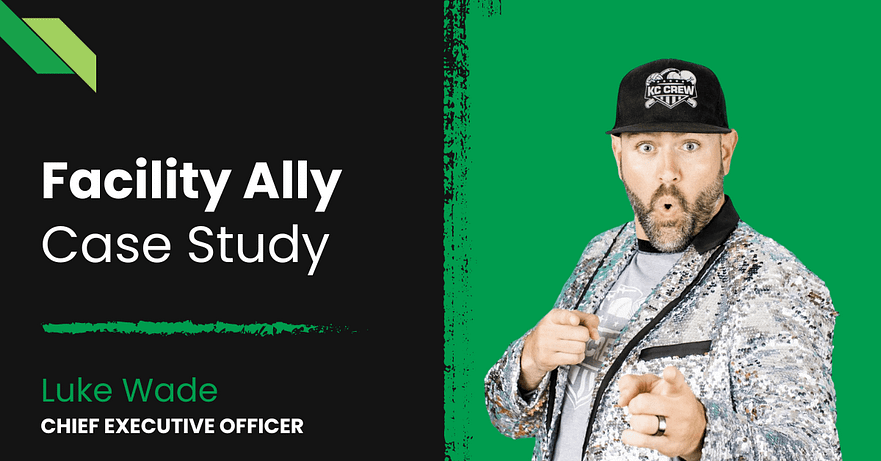15 Android Developer Interview Questions That Reveal App-Building Skills (Not Just Framework Knowledge)
Your Android developer interview questions are broken.
Not because they’re technically wrong. They’re broken because they predict the wrong outcomes.
You ask candidates about activity lifecycles, and they nail it. You test their knowledge of RecyclerView optimization, and they explain it perfectly. Then you hire them, and six months later, you’re wondering why your app has a 2.3-star rating and users keep uninstalling it.
The Day I Learned Android Interviews Are Backwards
We had a problem. Our mobile strategy was failing, and we needed an Android developer who could turn things around fast.
The existing app was a disaster. Slow loading times. Battery drain complaints. Crashes that seemed to happen randomly. Customer support was drowning in angry emails.
So we got serious about hiring. I mean really serious.
We built this elaborate interview process. Multi-round technical assessments. Whiteboarding sessions on Android architecture. Deep dives into Kotlin coroutines and dependency injection frameworks.
The candidate we hired was impressive. Could explain every Android component in detail. Drew perfect diagrams of MVVM architecture. Wrote clean, textbook-perfect code during the technical assessment.
Three months later?
Our “new and improved” app had worse reviews than the old one.
The loading screen was beautiful—and took 15 seconds. The UI was pixel-perfect—and consumed 40% more battery than before. The code was architecturally sound—and crashed whenever users got a phone call while using the app.
We’d hired someone who understood Android development in theory but had never actually shipped an app that real people use under real conditions.
Why Most Android Developer Interview Questions Test the Wrong Things
Think about what you actually need from an Android developer:
Build apps that don’t make users want to throw their phones across the room.
Handle the chaos of real-world mobile usage—slow networks, interrupted sessions, device rotations at the worst possible moments.
Create interfaces that work whether someone’s using a budget phone with 2GB of RAM or the latest flagship device.
Now think about your current Android interview questions. How many of them test for these abilities?
Standard Android interview topics:
- Fragment vs. Activity lifecycles
- Dependency injection implementation details
- Kotlin syntax and language features
- Android Jetpack component explanations
Real Android development challenges:
- Why does this feature work perfectly on your test device but crash on user phones?
- How do you handle users who switch between WiFi and cellular mid-transaction?
- What happens when your app needs to work on a phone with 1GB of RAM?
- How do you debug issues that only happen on specific device/OS combinations?
The gap between what we test and what matters explains why so many Android hires disappoint.
The Hidden Costs of Hiring Wrong
Let me break down what a bad Android hire actually costs you.
The obvious expenses:
- $22,000+ in recruiting and interview time
- 8-12 weeks from posting to productivity
- Training and onboarding investment
The brutal hidden costs:
- App store rating damage that takes months to recover
- User acquisition costs wasted on people who uninstall immediately
- Customer support is overwhelmed with performance complaints
- Development team morale crushed by negative reviews
- Opportunity cost of delayed feature releases
I’ve watched companies spend six figures fixing problems created by Android developers who aced every Android developer interview questions but couldn’t build apps that actually work in users’ hands.
15 Android Interview Questions That Test Real Mobile Skills
User Experience Under Real Conditions
1. Users complain your app “feels slow” but your profiling shows good frame rates. How do you identify and fix the perceived performance issues?
Look for: Understanding of perceived vs. actual performance, user experience awareness, knowledge of animation and transition optimization.
2. Your app works perfectly during testing, but users report frequent crashes. The crash logs show memory-related issues occurring randomly. Walk me through your investigation.
Look for: Memory management knowledge, device fragmentation awareness, systematic debugging approach, understanding of real-world usage patterns.
3. Design an Android feature that allows users to upload photos while offline, then syncs when connectivity returns, handling edge cases like partial uploads.
Look for: Offline-first thinking, background processing, conflict resolution, battery optimization awareness, robust error handling.
Device Fragmentation and Performance
4. Your app runs smoothly on flagship devices but is unusable on phones with 2GB of RAM. How do you optimize for low-end devices without degrading the premium experience?
Look for: Memory optimization strategies, adaptive UI approaches, performance profiling, and understanding of Android’s memory management.
5. Explain how you’d implement a camera feature that works consistently across different Android manufacturers and OS versions.
Look for: Camera API knowledge, device compatibility strategies, fallback handling, testing approaches for fragmentation.
6. Users report battery drain issues specifically with your app. Describe your investigation and optimization process.
Look for: Battery optimization knowledge, background processing awareness, profiling tools, and power management APIs.
Real-World Integration Challenges
7. Your app needs to integrate with a payment API that sometimes takes 30 seconds to respond. How do you handle this without creating a terrible user experience?
Look for: Async processing, user feedback strategies, timeout handling, network reliability patterns, background task management.
8. Design an Android solution for handling push notifications that trigger different actions based on app state and user context.
Look for: Notification best practices, app state awareness, user experience consideration, and background processing limitations.
9. Your e-commerce app needs to work reliably during peak shopping events when network conditions are unpredictable. How do you architect for this?
Look for: Network resilience, caching strategies, retry mechanisms, graceful degradation, user communication during issues.
Production Problem-Solving
10. After an app update, crash rates spike to 12%, but only on Samsung devices running Android 11. Your QA testing didn’t catch this. How do you debug and fix it?
Look for: Device-specific debugging, crash analysis tools, systematic isolation, vendor-specific issue awareness, and hotfix strategies.
11. Users report that certain screens in your app take forever to load, but only during specific times of day. How do you investigate this time-dependent performance issue?
Look for: Performance monitoring, server-side considerations, caching strategies, time-based debugging, and user analytics interpretation.
12. Your app’s main feature works in portrait mode but breaks when users rotate to landscape. The layouts look fine in Android Studio. What’s your debugging approach?
Look for: Configuration change handling, state management, testing approaches, lifecycle awareness, and real device testing importance.
Architecture and Maintainability
13. You inherit an Android app with a single 3,000-line Activity that handles everything from network requests to UI updates. How do you refactor this safely?
Look for: Refactoring strategies, architectural thinking, risk mitigation, testing approaches, and incremental improvement methods.
14. Your team needs to add a complex new feature to an existing Android app. How do you decide between modifying existing code vs. building it as a separate module?
Look for: Architectural decision-making, maintainability considerations, testing implications, and team collaboration factors.
15. Explain how you’d implement A/B testing for UI changes in an Android app while maintaining a good user experience.
Look for: Feature flag implementation, user experience preservation, data collection strategies, rollback planning.
What Good Android Developer Answers Actually Sound Like
Strong response to performance question: “I’d start by looking at user-reported slow areas versus our metrics. Sometimes ‘slow’ means long loading times, but often it’s about responsiveness—the app doesn’t react immediately to touches. I’d check for main thread blocking, especially during data loading. I’d use systrace to identify frame drops and analyze whether they’re happening during layout, drawing, or input processing. For memory issues, I’d use the memory profiler to track allocation patterns and look for leaks, especially around configuration changes. I’d also implement analytics to understand which user flows feel slow and correlate that with device specs.”
Weak response: “I’d use the profiler to find slow parts and optimize them. Maybe add some caching and make sure the UI is smooth.”
The strong answer shows systematic thinking, specific tools, and understanding of how technical issues translate to user experience problems.
The Android Interview Questions That Waste Everyone’s Time
Skip these traditional questions that don’t predict success:
- “Explain the Activity lifecycle” (everyone memorizes this)
- “Implement a custom RecyclerView adapter” (doesn’t test real-world usage)
- “Compare MVP vs. MVVM patterns” (architecture discussions without context)
- “Explain Kotlin coroutines vs. RxJava” (framework preference debates)
- “Draw the Android system architecture” (textbook knowledge)
These questions test memorization, not mobile development ability.
Red Flags That Signal Trouble Ahead
Watch out for candidates who:
- Only think about happy path scenarios. Real Android development is about handling everything that goes wrong.
- Can’t explain how they’ve debugged real device issues. If they’ve only developed on emulators, they’re not ready for production challenges.
- Focus on code architecture without mentioning user experience. Beautiful code means nothing if the app is terrible to use.
- Don’t ask about your user base or device requirements. Context matters enormously in mobile development.
- Give generic performance optimization answers. Real optimization requires understanding specific bottlenecks.
Building Android Interviews Around Your Reality
Instead of generic Android questions, create scenarios based on your actual app.
If you build consumer apps:
- How would you optimize app launch time for users who open it dozens of times daily?
- Design offline capabilities for users with unreliable internet connections.
If you build enterprise apps:
- How would you handle sensitive data storage across different Android security levels?
- Implement features that work reliably across corporate device management systems.
If you build media apps:
- Optimize video playback for devices with limited processing power.
- Handle background audio playback across different Android versions and manufacturers.
Why This Approach Finds Better Android Developers
When you test real mobile development skills:
- You find developers who think about users first, not just technical implementation
- You identify people who can handle device fragmentation, the biggest Android challenge
- You discover candidates who understand mobile-specific constraints like battery life and intermittent connectivity
- You hire developers who can debug production issues that only surface with real users
- You get people who care about app store ratings and user retention
Stop Testing Android Knowledge, Start Testing Mobile Skills
You don’t need someone who can recite the Android documentation. You need someone who can build mobile apps that users actually want to keep using.
The traditional Android interview process is designed around the wrong outcomes. It optimizes for framework knowledge when you need problem-solving ability under mobile constraints.
There’s a Smarter Way to Get Android Developers
Here’s the reality: You could spend the next three months perfecting your Android interview process, or you could have experienced mobile developers working on your app in two weeks.
Traditional Android hiring:
- 10+ weeks from job posting to productive developer
- $28K+ investment in recruiting and interviews
- 40% chance they can’t handle real mobile development challenges
- Weeks of onboarding and discovering their actual capabilities
- Risk of hiring someone who builds apps that users hate
Full Scale’s Android staff augmentation:
- 2 weeks from decision to experienced Android developers
- Developers have already proven on real mobile applications
- 95%+ retention because they actually solve problems
- No onboarding delays or capability surprises
- Direct integration into your mobile development workflow
We’ve already solved the hard problem: finding Android developers who build apps that users love to use, not just apps that compile cleanly.
Our Android developers have optimized apps for low-end devices without sacrificing features. They’ve debugged device-specific issues across dozens of manufacturer customizations. They’ve built offline-capable apps that sync seamlessly. They’ve handled the chaos of real-world mobile usage—and delivered apps with 4+ star ratings.
Get mobile developers who’ve already proven they can build apps that succeed in the real world.
No more framework quizzes. No more hoping interview performance translates to mobile development skills. Just experienced Android developers ready to build apps that users actually enjoy using.



